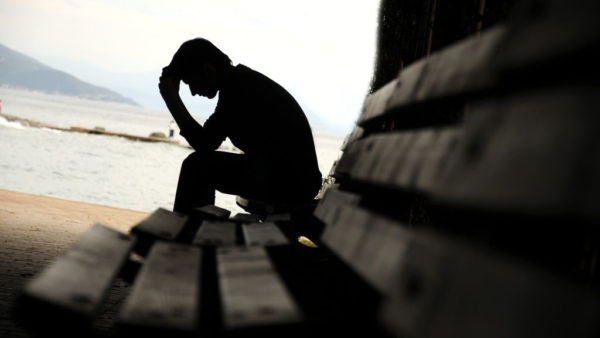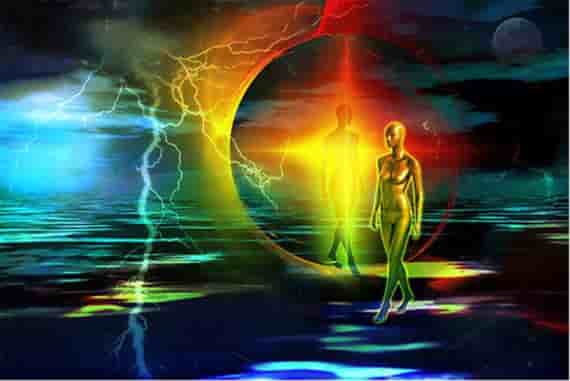The human experience can be rough, so some of us long for a break. A break from the grief of losing someone we love. A break from being mired in daily struggle. A break from being human. This is the first time Erik spoke to me without the need of a question prompt. He spoke with solemn passion. I love this Best of Erik.
Erik: You know, Mom, before you ask me a question, I want to talk to you about people who want to take their own life. In some cases, the stress, the grief, whatever builds up, it’s like a volcano. Only so much can build before it has to release. The lesson in each case is that noin
Me: Mm hm.
(Long pause)
Jamie: He’s pausing. Erik, I can see that.
Me: What? Is he picking his nose?
Jamie (sounding touched): No. His eyes are tearing up.
Me: Oh, Sweetie. It’s okay.
Jamie: He’s just kind of readjusting his gestures and how he’s sitting so that he’s really not squared off with me; we’re not looking at each other face to face.
(Pause)
Jamie (to Erik): But, you know, I can see that you’re adjusting. I can see. I can see.
Erik: Well, it’s hard …
(Pause)
Jamie (to Erik, in a warm, motherly tone): Take a deep breath. You don’t always have to be the fast talker.
Me: Yeah, Sweetie. Take your time.
Jamie (with a soft chuckle): I don’t mind a pause.
Erik: It just throws me right back into my human state of mind—right back into my body—and I haven’t shaken hands with those demons in a long time.
Me: Yeah, I know.
Erik: And I’m happy not to shake hands with them anymore, but when you’re human, you think you have the power to override them—the internal thoughts, those crazy horses in your head that just run with ideas and thoughts that actually hold no truth. But because the thoughts are so heavy, they feel incredibly real, and we start to validate them as real and they’re not. It’s within this slice of anxiety, madness, grief, this really imbalanced state of mind and heart—that’s the imperfection that makes us perfect.
Me: Not sure if I understand, but…
Erik: In so many people who want to take their life, it’s just about getting out of the body, not an act or a willingness to die. It might be nice, ya know? First hand, I kinda know that experience.
Me (solemnly): Yeah.
Erik: A lot of times those people might be worried that they couldn’t do everything they wanted or needed to do, desired to. But then right before, they get this peace and calm, knowing that everything is going to be all right. All of a sudden, they know it’s all going to be okay. Really at that moment, they already left the body.
Me: Oh!
Erik: A lot of people I see that are headed toward the answers, committing suicide, attempting suicide, ending their life, they just need out of their body just for a certain moment. A lot of times they do that before they get a chance to follow through, and then they back down.
Me: They just need a rest. A rest from being human.
Erik: Yeah. And when people struggle to that point, like I said, many times it’s about the perfection of imperfection.
Me: What do you mean by that? I just don’t understand.
(Pause)
Erik: Our perfectness is composed of a huge percentage of things that just aren’t’ right.
Jamie (giggling): He kind of puts that in air quotes.
Erik: I know there’s no right or wrong—there just “is”, but as humans, the brain has a hell of a hard time relaxing in that state of mind. It’s almost like we enjoy struggle more than we enjoy peace. And all of humanity has to learn this lesson for us to achieve it—to make it a natural state of being. Peace. That’s what our generations to come might experience, but for now, we’re still in a natural state of being in struggle. Our natural state of being as a human is based on being in a constant struggle. Even when you’re calm, you’re thinking, “How long is this going to last?” “When I get out of this, then I have to face that shit, and then I have to manage that crap over there.” You know, it’s still all fucked up, but you’re going to have these pockets of peace. We’re getting through all of this as humanity. Everyone has to learn to turn the dial on the emotional, mental, spiritual level from chaos and struggle to peace and calm. Until we do that, you know, we’re all attached to each other—we’re all antennas. And we can get those incredibly enlightened people, loving people, people who are aware, and their antenna inside their body just starts to pick up all the struggle and the chaos. And they don’t want it. Just like you, Mom. And some of those people just want a break from being human. But this whole media, vulnerability, kind of openness that you and I have gone through—it was done in a way to save other people but not you. And I know you’ll come soon enough and see how you can save yourself. And how you do that will not stop the openness, the storytelling, because we—
Jamie (to Erik): Who’s we? (To me) You and him.
Me: Okay.
Erik: We cannot even count how many people we’ve touched nor how many people that we have taught. So, now that they’re more knowledgeable and can heal through their grief and not leave this world as it’s changing—that absolutely is extremely valuable and extremely important, but never, ever more important than you. I hope knowing that helps.
Me: Aw. I love you, Erik.
Erik: I love you more.




